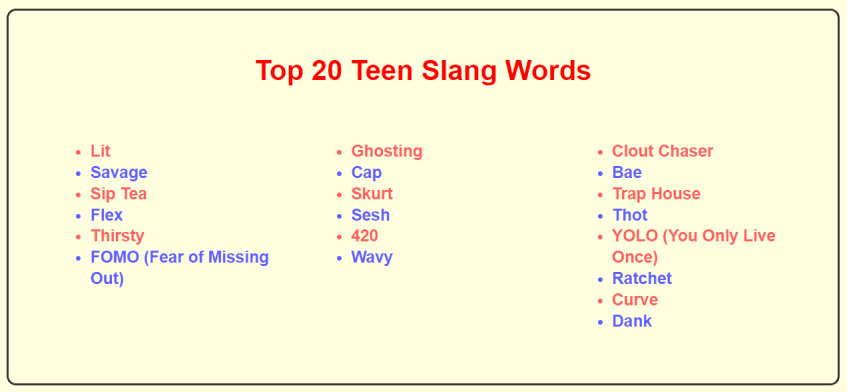LMIRL Meaning
LMIRL stands for Let’s Meet In Real Life.
LMIRL is an internet slang initialism in which the sender suggests meeting the recipient in person.
How Is LMIRL Used? Use Cases & Examples
You should be cautious when someone sends you LMIRL (let’s meet in real life). Depending on who you’re talking to, this could be the first step in building an IRL friendship, or it could be an invitation you should decline. If such acronyms were to appear in children’s digital conversations, it would be necessary for parents to intervene.
Examples of how your teen might use the slang term LMIRL:
- We’ve been chatting for months now. LMIRL.
- We are done chatting, LMIRL.
- Hello, are you alone? I’ve been thinking about you, LMIRL.
- You look much older than your actual age. LMIRL
How to Identify If Your Kids Are Using the LMIRL Slang Word
A teen using the slang term LMIRL indicates they are planning to meet a potentially dangerous individual. You need to be aware of teenage slang to protect them from potential dangers such as sexual predators. Here are two effective ways to identify the LMIRL slang word:
1. Check Their Phones Directly for the LMIRL Slang Word
To determine if your teens are using LMIRL slang, you can check their phones directly. You need to view their text messages, search history, and chat messages on WhatsApp, Skype, Facebook, Line, etc.
Cons:
- Affect your relationship with your kids
- Troublesome
- Can’t detect dangers timely
Pros:
- No need to install any app
2. Install A Parental Control App to Monitor the LMIRL Slang Word
A powerful parental control app can be used to legally monitor smartphones owned by your children. It offers countless features to detect dangerous teenage slang on kids’ phones. It allows tracking SMS, chat messages, and search history to spot LMIRL. You can get timely alerts about LMIRL without them knowing. So you can talk to your kids in time and stop things from getting worse.
Pros:
- More features like chat monitoring, GPS tracking, call recording, surrounding recording, etc
- Instant alerts
- Easy to install and use
Cons:
- Some apps are not free
Parental Control Apps to Detect the LMIRL Slang Word
Android:
- Google Family link:
It is a family parental control service from Google that helps you check search history for the LMIRL slang word, restrict content, set screen time, and more. - iKeyMonitor:
iKeyMonitor is one of the most powerful parental control apps. It monitors SMS, chat messages, and searched terms on kids’ phones. It will take screenshots/photos and send instant alerts to you on triggered alert words such as LMIRL. Besides, it will record calls, surroundings and block inappropriate apps to protect your kids from threats.
iOS:
- Apple Screen Time:
With Apple’s built-in parental control setting, you can manage app limits, set content restrictions, and more. Just unlock the iPhone or iPad, then go to Settings and tap on Screen Time. - Norton Family Parental Control:
Norton Family provides insights that help you foster a healthy online/offline balance for your children and their devices. - Kaspersky Safe Kids with GPS:
Kaspersky Safe Kids is a popular parental control app that provides web monitoring, app blocking, filtering, and more. - Alertbird Parental Control:
Alertbird is a parental control app for iOS that monitors the LMIRL slang term and other dangerous words. You will be notified immediately if it detects alert keywords in your searched terms and chat messages, such as the LMIRL slang word.
Tips to Talk With Your Kids About the Use of the LMIRL Slang Word
The use of the slang term LMIRL may be innocent, but more likely, your teen is in the process of being groomed by a sexual predator. Seeing this slang term in your child’s online communications indicates immediate danger and it is reasonable to contact the police for guidance. Here are some tips for talking to your teen about online predators:
- According to the FBI, children aged 12-15 make up 50 percent of victims of online predators. That’s a scary statistic. Let’s talk about how we keep you safe.
- Many predators use fake identities to lure children. Have you ever met such a person online?
- Do you know anyone who has fallen into a predator’s trap?
- What would you do if someone you met online started suggesting inappropriate behavior?
